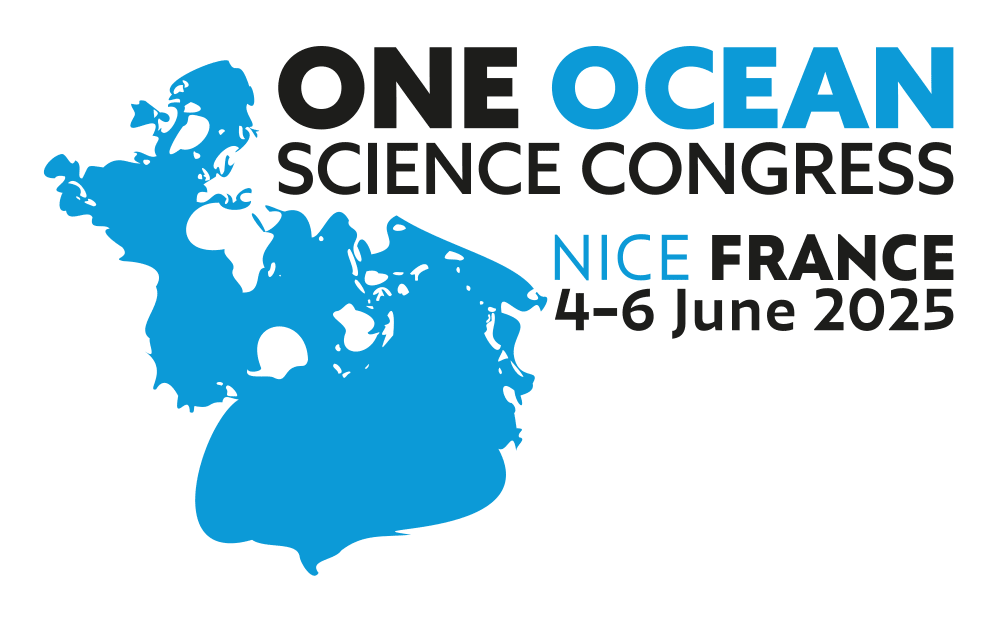The list below consists of mainly external events, relevant for EU4OceanObs and involving the participation of the EU action coordinators of the GEO Blue Planet Initiative and/or G7 Future of the Seas & Oceans Initiative.


One Ocean Science Congress
3 Jun 2025 - 6 Jun 2025
A UNOC3 Special Event dedicated to Science
CNRS and IFREMER have been tasked with organizing the One Ocean Science Congress (OOSC), a UNOC3 Special Event dedicated to Science, and to provide Heads of State, Government, and the broader society, with comprehensive scientific insights on the Ocean’s health and future trajectory. Science-informed decisions should enable the conservation and sustainable use of the Ocean, optimize the solutions it offers, and safeguard the services and benefits it provides to humanity.
About the One Ocean Science Congress
The Congress will feature a mix of plenary sessions, including opening and keynote speeches, alongside parallel oral and poster presentations. To enhance interactions between science and society, action and policy, and to engage civil society more broadly, ‘townhalls’ such as panels and roundtables will also be arranged.
More information, including the full schedule: https://one-ocean-science-2025.org
Some sessions not to miss
Tuesday 3 June: Presentation – The Integrated Marine Debris Observing Systems : Global monitoring to support research and decision making
Initiated during the OceanObs’19 Conference, where scientists highlighted the need for advancing a harmonized approach to marine debris monitoring, the Integrated Marine Debris Observing System (IMDOS) aims to support the development of a global interoperable marine debris monitoring system. The need for comprehensive and coordinated monitoring is more relevant than ever today in the context of the Global Plastic Treaty. Thus, the implementation of IMDOS will benefit not only the research community, but also policy- and decision-makers and the private sector.
As a coordination body, IMDOS mission is to provide guidance to lead the marine debris community in establishing a sustained global observing system covering the global Ocean Observation value chain. The observing system encompasses three complimentary approaches that inform one another: in situ observations, remote sensing and numerical modelling, but also covers different ocean ecosystems: from the sea surface, coasts to open ocean, and down to the deep seafloor. IMDOS also promotes the integration of a range of observing elements, from citizen science initiatives to advanced technological tools, endorsing the use of state-of-the-art techniques throughout the monitoring process.
IMDOS’ vision entails harmonising existing framework guidelines towards globally recognized standards, ensuring robust and sustainable monitoring of marine debris. By doing so, future efforts will generate adequate, FAIR (Findability, Accessibility, Interoperability, and Reuse), and open data to fill knowledge gaps and to address diverse stakeholder needs with actionable information.
IMDOS is organized in 11 Task Teams, clustered into Thematic Data, Technical Coordination and Stakeholder Engagement. A Call for Participation to join the network was launched in July 2024 and generated about 100 answers. Following that Call, members of the Steering Committee were appointed and tasked, at their first meeting, to elaborate the functioning of the Task Teams. The One Ocean Science Congress will be the occasion to present IMDOS activities and foster global coordination.
Tuesday 3 June: Presentation- Leveraging Earth Observation for Sustainable Fisheries: GEO Blue Planet Fisheries Working Group’s Strategic Framework
The GEO Blue Planet Fisheries Working Group (FWG) is supporting sustainable fisheries resource management through advanced Earth observation (EO) technologies. Focused on addressing critical challenges like overfishing, climate impacts, and illegal, unreported, and unregulated (IUU) fishing, the FWG aims to fill data gaps, improve decision-making, and foster international collaboration.
Its strategic framework, outlined in the Terms of Reference (ToR), prioritizes the development of interoperable EO tools that combine remote sensing (e.g. satellite imagery) and in situ observations, and predictive models. This enables stakeholders to monitor fisheries stocks, habitat conditions, and ecological dynamics more efficiently and implement evidence-based decisions that protect marine resources and biodiversity. The FWG efforts center on three key areas: stakeholder engagement, scientific and technical cooperation, and capacity building. By enhancing local, regional and global capacity to use EO tools the group supports practices aligned with global goals.
Looking ahead, the FWG is planning to host a workshop in 2025, ”Earth Observation and Prediction for Global Sustainable Fisheries Management,” to engage international organizations, regional fisheries bodies, and technical experts to address data limitations, share innovative EO applications, and enhance fisheries management practices.
Thursday 5 June: Poster – Bringing Sargassum Observation and Prediction to Decision Makers
The Sargassum Working Group (SWG) of GEO Blue Planet will showcase its activities, addressing the ongoing challenges posed by Sargassum seaweed blooms across the tropical Atlantic and coastal regions. Since 2011, Sargassum blooms have affected coastal communities, harming tourism, fishing, health, and ecosystems. The SWG is working on innovative monitoring, prediction, and response strategies to mitigate these impacts. By advancing remote sensing, in situ observation, and predictive modeling, the group enhances real-time detection, forecasting, and data sharing, following FAIR principles (Findable, Accessible, Interoperable, and Reusable).
The SWG has been recognised as the monitoring and prediction expert group of the UNESCO/IOC and the UNEP Cartagena Convention SPAW RAC.
Key initiatives include establishing an Integrated Observing System to coordinate data from various sources and continuing the development of the Sargassum Information Hub to centralize information on monitoring and prediction. Additionally, the SWG is working to design community-led decision-support tools to help local stakeholders respond effectively. A priority for SWG is fostering international and regional cooperation, advancing technical standards for data interoperability, and engaging citizen scientists. This collaborative, data-driven approach aims to create robust early-warning systems and deliver actionable insights for sustainable coastal management and the achievement of Sustainable Development Goals in affected regions
Monday 2 – 13 June: European Digital Ocean Pavilion
The European Digital Ocean Pavilion ill offer a unique opportunity for visitors to explore EU’s advancements in ocean knowledge and monitoring. Through a series of events and exhibitions from 2 to 13 June, attendees can discover cutting-edge EU assets and technologies. Located in the Green Zone – The Whale, the Pavilion is organized by the European Commission’s Directorate-General for Defence Industry and Space (DG DEFIS) in partnership with the Directorate-General for Research and Innovation (DG RTD), the Directorate-General for Maritime Affairs and Fisheries (DG MARE), and the Directorate-General for International Partnerships (DG INTPA), with Mercator Ocean International as the implementation partner.
Learn more: https://www.digitaloceanpavilion.eu/




